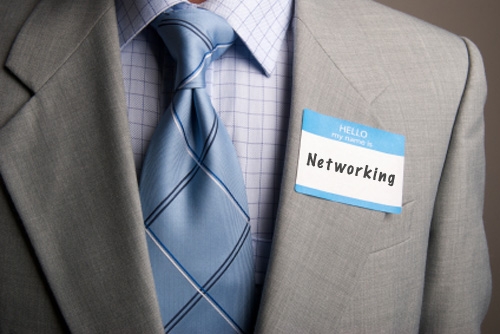
If you think networking is all about meeting new people to get a new job or find new business opportunities, you have the wrong idea.
That vision of networking as selling is outdated, said networking expert Julia Hobsbawm, who runs Editorial Intelligence, a London-based firm that hosts events to introduce interesting people to one another. Instead, think of networking as a way to deepen your connection with others.
Offer your contacts more than just information about job openings at your company or tips on how to sell to your purchasing manager. Instead, share more interesting knowledge: big trends in your industry, a tip on the year’s best snowboarding video, or which book to read for the most informed take on Somali pirates.
Her goal is to demystify the networking process and get people to be more productive by using their connections to learn new things. The problem, she said, is that few people feel comfortable networking.
Cocktail parties, a typical place to meet new people, are among the most difficult environments for making connections, she said, because “everybody feels shy and awkward.” It’s hard to find something to chat about. And other than the friend, school, or charity that brought you together, you have no idea what you have in common with the people you encounter.
An easier way is to meet people at “curated” events, where attendees are carefully selected, such as a friend’s dinner party or an industry working group. Talk about your interests and find out what interests other person, explained Hobsbawm. Then see if you can do anything for one another, or if you can make an introduction to another person in your professional circle.
“A great networker is someone who helps people connect with others,” Hobsbawm said.
Hobsbawm recommends in-person meetings, which allow you to more quickly and easily decide whether you trust or like someone.
“You get a completely different read from me in person versus by phone, email or Skype,” she said.
Hobsbawm ran a public-relations firm in London before starting her networking business a decade ago. She was named Honorary Visiting Professor in Networking at City University London’s Cass Business School in 2011, making her the world’s first professor of networking, she said.
Her approach focuses on making deeper connections, rather than frantically trying to network with everyone you meet. She advocates sticking to what’s known as Dunbar’s number: 150 people in your core network. More than this and you don’t really know them well.
Although most people feel uncomfortable with new acquaintances, Hobsbawm suggests approaching networking the way you think about fitness.
Invest in your network the way you would spend money on a gym membership and time running on a treadmill, she said. Make a point to have coffee with co-workers or friends more often. Read more to give yourself something to discuss and hone in on subjects in which you are particularly interested.
If you don’t think you’re interesting enough to attract new friends or connections, you might consider taking a networking course. There are many options: business training company General Assembly offers one in London called The Nuts and Bolts of Networking and Cass Business School has a class called Connecting for Success. And start thinking of yourself as a person who has something to offer others.
“It’s not just about who I know, it’s about what I know,” Hobsbawm said.
Source: BBC Capital



